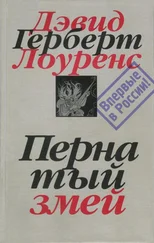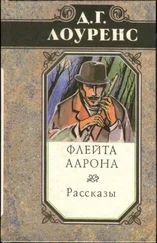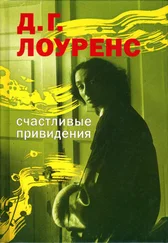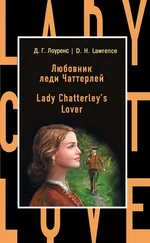Дэвид Лоуренс - Sons and Lovers
Здесь есть возможность читать онлайн «Дэвид Лоуренс - Sons and Lovers» весь текст электронной книги совершенно бесплатно (целиком полную версию без сокращений). В некоторых случаях можно слушать аудио, скачать через торрент в формате fb2 и присутствует краткое содержание. Жанр: Старинная литература, на английском языке. Описание произведения, (предисловие) а так же отзывы посетителей доступны на портале библиотеки ЛибКат.
- Название:Sons and Lovers
- Автор:
- Жанр:
- Год:неизвестен
- ISBN:нет данных
- Рейтинг книги:3 / 5. Голосов: 1
-
Избранное:Добавить в избранное
- Отзывы:
-
Ваша оценка:
- 60
- 1
- 2
- 3
- 4
- 5
Sons and Lovers: краткое содержание, описание и аннотация
Предлагаем к чтению аннотацию, описание, краткое содержание или предисловие (зависит от того, что написал сам автор книги «Sons and Lovers»). Если вы не нашли необходимую информацию о книге — напишите в комментариях, мы постараемся отыскать её.
Sons and Lovers — читать онлайн бесплатно полную книгу (весь текст) целиком
Ниже представлен текст книги, разбитый по страницам. Система сохранения места последней прочитанной страницы, позволяет с удобством читать онлайн бесплатно книгу «Sons and Lovers», без необходимости каждый раз заново искать на чём Вы остановились. Поставьте закладку, и сможете в любой момент перейти на страницу, на которой закончили чтение.
Интервал:
Закладка:
“What do you want, then?”
“I want to do something. I want a chance like anybody else. Why should I, because I’m a girl, be kept at home and not allowed to be anything? What chance have I?”
“Chance of what?”
“Of knowing anything—of learning, of doing anything. It’s not fair, because I’m a woman.”
She seemed very bitter. Paul wondered. In his own home Annie was almost glad to be a girl. She had not so much responsibility; things were lighter for her. She never wanted to be other than a girl. But Miriam almost fiercely wished she were a man. And yet she hated men at the same time.
“But it’s as well to be a woman as a man,” he said, frowning.
“Ha! Is it? Men have everything.”
“I should think women ought to be as glad to be women as men are to be men,” he answered.
“No!”—she shook her head—“no! Everything the men have.”
“But what do you want?” he asked.
“I want to learn. Why should it be that I know nothing?”
“What! such as mathematics and French?”
“Why shouldn’t I know mathematics? Yes!” she cried, her eyes expanding in a kind of defiance.
“Well, you can learn as much as I know,” he said. “I’ll teach you, if you like.”
Her eyes dilated. She mistrusted him as teacher.
“Would you?” he asked.
Her head had dropped, and she was sucking her finger broodingly.
“Yes,” she said hesitatingly.
He used to tell his mother all these things.
“I’m going to teach Miriam algebra,” he said.
“Well,” replied Mrs. Morel, “I hope she’ll get fat on it.”
When he went up to the farm on the Monday evening, it was drawing twilight. Miriam was just sweeping up the kitchen, and was kneeling at the hearth when he entered. Everyone was out but her. She looked round at him, flushed, her dark eyes shining, her fine hair falling about her face.
“Hello!” she said, soft and musical. “I knew it was you.”
“How?”
“I knew your step. Nobody treads so quick and firm.”
He sat down, sighing.
“Ready to do some algebra?” he asked, drawing a little book from his pocket.
“But———”
He could feel her backing away.
“You said you wanted,” he insisted.
“To-night, though?” she faltered.
“But I came on purpose. And if you want to learn it, you must begin.”
She took up her ashes in the dustpan and looked at him, half tremulously, laughing.
“Yes, but to-night! You see, I haven’t thought of it.”
“Well, my goodness! Take the ashes and come.”
He went and sat on the stone bench in the back-yard, where the big milk-cans were standing, tipped up, to air. The men were in the cowsheds. He could hear the little sing-song of the milk spurting into the pails. Presently she came, bringing some big greenish apples.
“You know you like them,” she said.
He took a bite.
“Sit down,” he said, with his mouth full.
She was short-sighted, and peered over his shoulder. It irritated him. He gave her the book quickly.
“Here,” he said. “It’s only letters for figures. You put down ‘ a ’ instead of ‘2’ or ‘6.’”
They worked, he talking, she with her head down on the book. He was quick and hasty. She never answered. Occasionally, when he demanded of her, “Do you see?” she looked up at him, her eyes wide with the half-laugh that comes of fear. “Don’t you?” he cried.
He had been too fast. But she said nothing. He questioned her more, then got hot. It made his blood rouse to see her there, as it were, at his mercy, her mouth open, her eyes dilated with laughter that was afraid, apologetic, ashamed. Then Edgar came along with two buckets of milk.
“Hello!” he said. “What are you doing?”
“Algebra,” replied Paul. are you doing?”
“Algebra,” replied Paul.
“Algebra!” repeated Edgar curiously. Then he passed on with a laugh. Paul took a bite at his forgotten apple, looked at the miserable cabbages in the garden, pecked into lace by the fowls, and he wanted to pull them up. Then he glanced at Miriam. She was poring over the book, seemed absorbed in it, yet trembling lest she could not get at it. It made him cross. She was ruddy and beautiful. Yet her soul seemed to be intensely supplicating. The algebra-book she closed, shrinking, knowing he was angered; and at the same instant he grew gentle, seeing her hurt because she did not understand.
But things came slowly to her. And when she held herself in a grip, seemed so utterly humble before the lesson, it made his blood rouse. He stormed at her, got ashamed, continued the lesson, and grew furious again, abusing her. She listened in silence. Occasionally, very rarely, she defended herself Her liquid dark eyes blazed at him.
“You don’t give me time to learn it,” she said.
“All right,” he answered, throwing the book on the table and lighting a cigarette. Then, after a while, he went back to her repentant. So the lessons went. He was always either in a rage or very gentle.
“What do you tremble your soul before it for?” he cried. “You don’t learn algebra with your blessed soul. Can’t you look at it with your clear simple wits?”
Often, when he went again into the kitchen, Mrs. Leivers would look at him reproachfully, saying:
“Paul, don’t be so hard on Miriam. She may not be quick, but I’m sure she tries.”
“I can’t help it,” he said rather pitiably. “I go off like it.”
“You don’t mind me, Miriam, do you?” he asked of the girl later.
“No,” she reassured him in her beautiful deep tones—“no, I don’t mind.”
“Don’t mind me; it’s my fault.”
But, in spite of himself, his blood began to boil with her. It was strange that no one else made him in such fury. He flared against her. Once he threw the pencil in her face. There was a silence. She turned her face slightly aside.
“I didn’t——” he began, but got no farther, feeling weak in all his bones. She never reproached him or was angry with him. He was often cruelly ashamed. But still again his anger burst like a bubble surcharged; daand still, when he saw her eager, silent, as it were, blind face, he felt he wanted to throw the pencil in it; and still, when he saw her hand trembling and her mouth parted with suffering, his heart was scalded with pain for her. And because of the intensity to which she roused him, he sought her.
Then he often avoided her and went with Edgar. Miriam and her brother were naturally antagonistic. Edgar was a rationalist, who was curious, and had a sort of scientific interest in life. It was a great bitterness to Miriam to see herself deserted by Paul for Edgar, who seemed so much lower. But the youth was very happy with her elder brother. The two men spent afternoons together on the land or in the loft doing carpentry, when it rained. And they talked together, or Paul taught Edgar the songs he himself had learned from Annie at the piano. And often all the men, Mr. Leivers as well, had bitter debates on the nationalizing of the land and similar problems. 12Paul had already heard his mother’s views, and as these were as yet his own, he argued for her. Miriam attended and took part, but was all the time waiting until it should be over and a personal communication might begin.
“After all,” she said within herself, “if the land were nationalized, Edgar and Paul and I would be just the same.” So she waited for the youth to come back to her.
He was studying for his painting. He loved to sit at home, alone with his mother, at night, working and working. She sewed or read. Then, looking up from his task, he would rest his eyes for a moment on her face, that was bright with living warmth, and he returned gladly to his work.
Читать дальшеИнтервал:
Закладка:
Похожие книги на «Sons and Lovers»
Представляем Вашему вниманию похожие книги на «Sons and Lovers» списком для выбора. Мы отобрали схожую по названию и смыслу литературу в надежде предоставить читателям больше вариантов отыскать новые, интересные, ещё непрочитанные произведения.
Обсуждение, отзывы о книге «Sons and Lovers» и просто собственные мнения читателей. Оставьте ваши комментарии, напишите, что Вы думаете о произведении, его смысле или главных героях. Укажите что конкретно понравилось, а что нет, и почему Вы так считаете.









